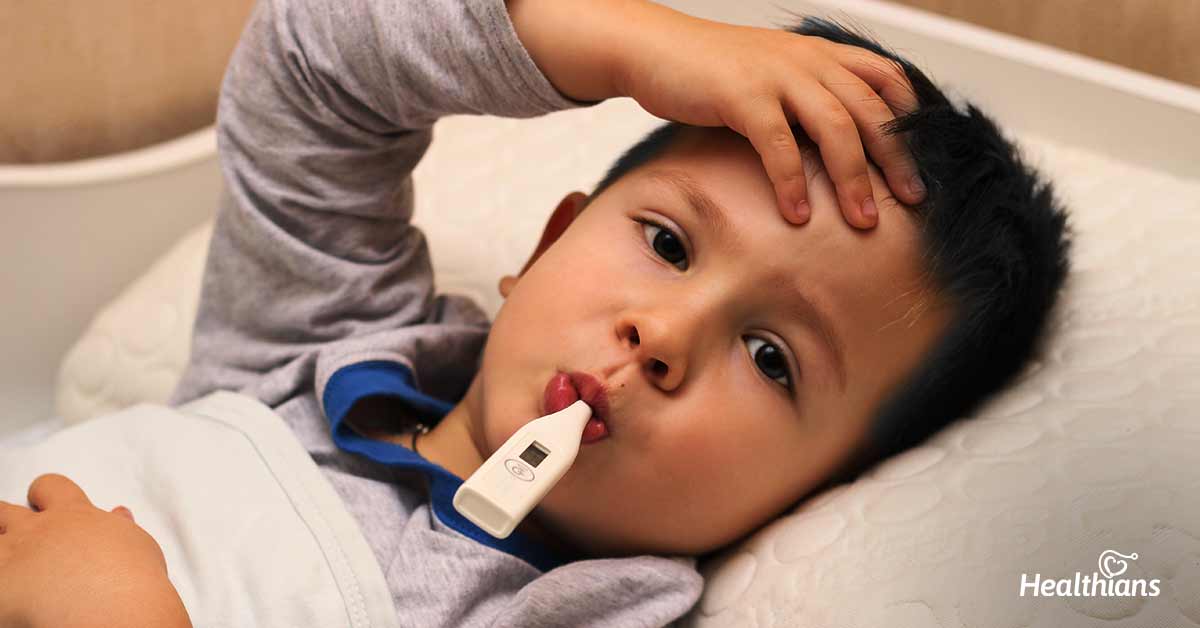Contributed by – Healthians Team
Almost all of us make the terrible mistake of dismissing fever as nothing. Fever is a term used for the high temperature of the body. Did you know that fever is not an illness but a symptom of some underlying health issue? Fever is a way in which our body fights against bacterial or viral infection.
Viral fever is one of the most common forms of fever. The seasonal change marks the outbreak of viral infections, making most of us it’s victim. Viral fever is the transmission of infection by viruses or small infectious agents. In most cases, it gets really difficult to distinguish the cause behind the fever. Understanding all about viral fever can help in diagnosis and protecting health.
Viral Fever- Know All About It
Viral fever refers to any fever caused by underlying viral illnesses. It is characterized by a rise in normal body temperature. Low immunity levels among the kids and old people makes them much more susceptible to viral fever. It is seldom a cause for concern if diagnosed correctly and timely. It is tricky to differentiate between bacterial and viral infections, as both share the typical symptoms.
Causes Of Viral Fever
Most of us frequently suffer from a viral infection and are inquisitive to know how does viral fever occurs? Viral fever can be triggered by one or several viruses, and the common causes include:
- Viral Infection that causes the common cold and upper respiratory tract infection is the most common and contagious condition that leads to viral fever or high temperature
- Viral fever is highly infectious and can transfer through cough, sneeze and droplet infection
- Insects like mosquitoes act as a carrier for infections that cause viral fever
- Stomach infections can also cause fever
Symptoms Of Viral Fever
Keeping a trail of the viral fever symptoms is very important, as it will help in segregating it with other diseases. The common symptoms include:
- High fever that is mostly intermittent
- Extreme fatigue
- Discomfort
- Muscle aches along with chills
- Severe joint pain
- Vomiting
- Nasal congestion
- Cough
- Headache
- Skin Rashes
- Diarrhea
Treatment For Viral Fever
How do you get rid of viral fever? Viral fever is often accompanied by weakness. The duration of viral fever can last from 3-5 days but can also exceed 10 days. If the fever continues it is important to seek proper medical assistance as prolonged cases of fever can also result in dengue, chikungunya, malaria etc.
The treatment is based on the symptoms, that is if the temperature is really high medical assistance is recommended. A note-worthy recommendation during viral fever is never to self -medicate. The best treatment is having plenty of healthy foods, with fewer spices and oil. Other home remedies are:
- Oranges which helps to boost immunity
- A mix of ginger & honey
Diagnosis For Viral Fever
Mostly the diagnosis of viral fever is based on the symptoms present, but if the infection is severe, then a blood test is recommended. There can be cases when there is a suspicion of malaria, dengue, or chikungunya. The common test that is recommended include:
- Complete blood count (CBC)
- Viral antigen test for viral fever
- The antibody test for viral fever
- Culture test for viral fever
Recovery From Viral Fever
How many days will it take to recover from viral fever? Even after going, viral fever leaves behind its traces, that is our body is overly exhausted. Some of the common ways for a quick recovery after the fever are:
- Keep your self-hydrated
- Take rest
- Healthy eating as it will help in regaining the immunity
- Having food rich in Vitamin C, zinc and Vitamin D boosts the immune system and protects against infections
- Drink herbal tea
- Hot bath or shower can help in relieving the aches

Prevention From Viral Fever
It is not easy to always keep yourself protected from all the different kinds of viruses and bacterial strains present in the atmosphere. As viral fever is contagious, there are certain ways through which we can try to prevent viral fever in children and adults. These include:
- Try to avoid going to crowded places
- Washing hands with soap and water before eating food
- Avoid touching your nose and mouth with your hands
A little care on your part can ensure a long and healthy life!





